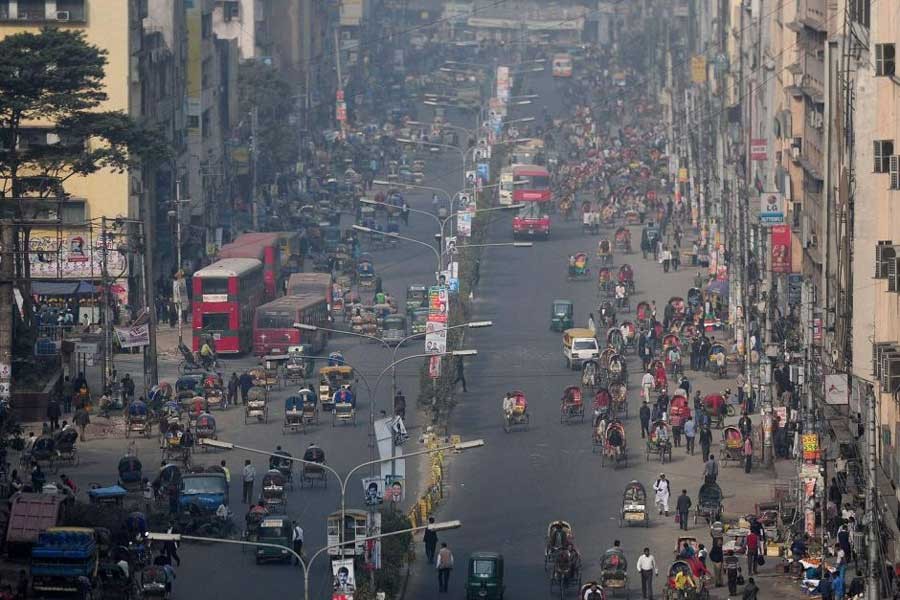
Published :
Updated :

Bangladesh is losing 1.0 GDP every year due to air pollution, which is a key barrier to the country's vision to become an upper-middle income country, according to a new World Bank study.
Bangladesh must check environmental degradation, particularly in urban areas and become climate resilient in order to achieve the upper-middle income status, the WB report suggested.
The preliminary findings of the report, 'Country Environment Assessment for Bangladesh', were discussed at a workshop at a city hotel on Sunday.
As per the findings, Dhaka and other cities face severe air and water pollution due to rapid and unplanned urbanisation.
Noncompliant industries and inadequate waste management of hazardous and nonhazardous materials are polluting the cities' air as well as surface and ground water, reports UNB citing the findings of the report.
For one tonne of fabric, the dyeing and finishing factories discharge 200 metric tonnes of wastewater to rivers leading to health hazards in the capital's poorer neighbourhood, the analysis said.
"When growth comes at the cost of the environment, it cannot sustain. The good news is that we have seen it is possible to grow cleaner and greener without growing slower," said Zahid Hussain, World Bank Acting Country Director for Bangladesh.
"To sustain its strong growth performance, Bangladesh simply cannot afford to ignore the environment. It must plan and act now to prevent environmental degradation and ensure climate resilience."
The draft report focused on four areas --cost of environmental degradation, urban wetlands, cleaner technologies, and institutions. As the country is rapidly urbanising, the analysis suggests that it needs to manage the urbanisation and industrialisation process in an environmentally sustainable way.
To enforce environment policies, the government must strengthen the institutions and regulatory framework. It should provide incentives to industries to adopt green and clean technologies and should enforce polluter's pay principle, it suggested.
Due to the unplanned development, unabated pollution is affecting both the big and small cities. For example, in Dhaka, around 600,000 residents are exposed to lead contamination, which can lead to IQ loss and neurological damage, especially among children, said the study of the global lender.
The cities also suffer from waterlogging due to heavy rainfall. They are vulnerable to floods due to wetland encroachments and lack of waste management systems. For instance, Pabna has lost nearly half of its wetlands since 1990. Now it faces prolonged waterlogging. To improve the cities' resilience, the government needs to incorporate wetlands into urban planning, enforce zoning, and invest in waste management, it said.
Climate change further aggravates industrial pollution as some industrial belts are exposed to sea level rise. Climate change will likely to reduce agricultural productivity, increase malnutrition, and decrease water availability in many areas.
Environment and Forests Minister Anwar Hossain Manju delivered the keynote speech, while policymakers, government officials, environmentalists, urban planners, and civil society representatives discussed the findings of the draft report, which will be launched early next year.


 For all latest news, follow The Financial Express Google News channel.
For all latest news, follow The Financial Express Google News channel.